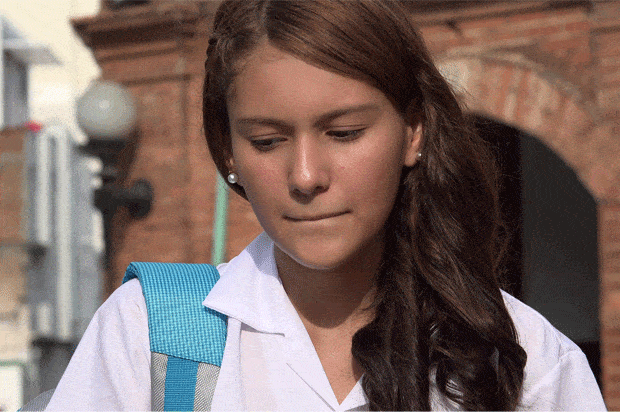I’ve got a problem, who should I talk to?
Opening up to people about a number of things can feel uncomfortable or scary. Even if it’s a close friend or family member, knowing who you can trust with the most intimate details about you can be terrifying - but it’s important to have a support network around you to help you through life.The Mix investigates opening up to others about your problems.

You don't have to go through anything alone.
I’m not sure if I need to speak to someone about my issues
We all run into problems in life, whether it be a body problem, relationship problem, or family problem. The world would stop turning if problems didn’t exist. So there’s no shame in struggling with something, or asking for help.
Sometimes you can sort a problem out yourself. But sometimes you get stuck and aren’t sure what to do. If this sounds like you, then it’s probably best to ask for help. Deciding who that person is can be very tricky. You might feel more comfortable chatting to someone you know very well, or alternatively someone you barely know at all.
Who should I talk to?
- A trusted adult, like a parent, guardian, grown-up friend or family member. More often than not, they’ll know you and understand you the most.
- A teacher, or a leader at your youth or sports club, for example. They’re still a trusted adult who should know how to best support you, and you may feel less emotional talking to them than a family member.
- A school counsellor or nurse can help if you’re having mental health or physical health problems. They can even give advice about friendship problems, as they’re trained to support you.
- Your GP may seem like a more serious option, but helping people is a GP’s job. You can trust them, even if you don’t know them well, as they’re very knowledgeable and won’t share what you tell them with other people without your permission.
You don’t have to go to all of these people. Choose the person who is best for you. The most important thing is that you trust the adult you speak to.
How can I start a difficult conversation?
It can be super tricky to have a hard, embarrassing or personal conversation with anyone. But it can be even more difficult when you have to start it, and you’re speaking to an adult. If you’re struggling to think of how to start the conversation, try:
- Thinking about what you want to say first.
- Writing it down could help you figure out what to say and how to say it.
- Thinking of a good time to start a conversation, such as at dinner, in the car, or at break time.
As soon as you’ve started talking, the rest will be a lot easier. Try to feel confident that your chosen adult will want to help you, no matter what the problem is.
If you really can’t face talking about your problem, then you can always write it down. Put it into a letter or an email, and give or send it to your trusted adult. Just make sure you send them the message in a safe way. No one wants their private Facebook messages seen by all their friends.
What if there’s no one I can speak to?
If after reading this you can’t think of an adult to speak to, or you really, really don’t want to speak to any of the adults close to you, then consider these places:
The Mix, this website can help you in a number of ways. You can post a question anonymously on our discussion boards, and other young people will reply with their advice. You can also type your concern and get help from a team member in our one-to-one webchat.
Childlineis a charity that helps children aged under 18. You can call their helpline on 0800 1111 or talk to a counsellor online by logging-in to Childline’s 1-2-1 chat.
Papyrus can give you immediate support if you’re feeling extremely low and have had suicidal thoughts. Call them for free on 0800 0684141 or send a text to 07786 209697.
What if I don’t want to talk to anyone?
You can’t be forced to talk about your problems – you have to make that decision. But remember there are lots of people, online or offline, who will want to support you whatever you’re going through. It’s a brave thing to open up, and once you’ve made that first step, the rest will become easier.
Next Steps
- Papyrus supports young people who are feeling suicidal - you can call, email or text them. Call on 0800 068 41 41.
- Chat about this subject on our Discussion Boards.
By Holly Turner
Updated on 01-Apr-2021
No featured article














